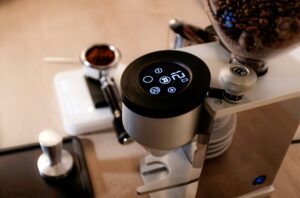Have you ever imagined a world where your coffee table could double as a smart device? Well, the future is here with the development of smart surfaces that are revolutionizing the way we interact with technology.
These innovative surfaces are equipped with sensors and display capabilities, allowing users to control various devices with simple gestures or voice commands. Imagine adjusting the lighting in your room by simply swiping your finger on the coffee table, or answering a phone call by tapping on the kitchen counter – these are just some of the possibilities that smart surfaces offer.
According to industry experts, the market for smart surfaces is projected to reach $20 billion by 2025, with major players like Microsoft and Samsung already investing heavily in this technology. “Smart surfaces have the potential to transform our homes and workplaces, making them more intuitive and interactive,” says tech analyst Jessica Lee.
But the implications of smart surfaces go beyond convenience – they also raise questions about privacy and security. With these surfaces constantly collecting data on our movements and interactions, concerns about data protection and surveillance have been raised by privacy advocates.
As we continue to embrace the era of smart technology, it is essential to consider the broader impact of these innovations on our daily lives. Smart surfaces may offer incredible convenience and efficiency, but it is crucial to ensure that privacy and security remain a top priority in this evolving technological landscape.



